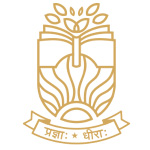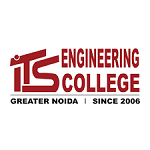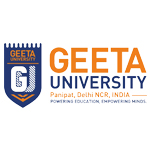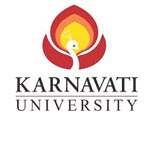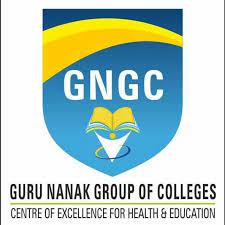NEET 2019: Quick tips for Biology, Chemistry and Physics
If your goal is to join premier institutes in India that offer MBBS and BDS courses, then the National Eligibility Entrance Test (NEET – UG) should be on your radar. This is the first year the National Testing Agency (NTA) will be conducting this exam. Till 2018, NEET was conducted by the Central Board of Secondary Education (CBSE). The NTA has experience in conducting large-scale competitive exams like the Joint Entrance Exam, JEE Main as well as others like the UGC-NET.
A quick summary of the exam: The NEET is a 3-hour long exam which includes 3 sections — Physics, Chemistry and Biology. Of the total 180 questions, 90 would be from Biology and 45 each from Physics and Chemistry. Preparation syllabus includes the whole of 11th and 12th standard NCERT textbooks in the respective subjects.
Every correct answer would fetch you plus four marks, and every incorrect answer results in a negative mark. Questions that are not attended do not have any penalty marks. Every question you attempt or pass has a repercussion. Therefore, choose your battles wisely, if you do not know a question for sure, do not mark it!
To prepare for NEET, it is not enough to study and solve problems in Physics, Chemistry and Biology alone. To earn a seat in some of the most coveted medical colleges, you will have to build a strong and strategic preparation plan. To help you prepare better, here are a few smart hacks:
Solve previous year papers
The wisest step to take now would be to solve question papers of the past few years. No competitive exam preparation is complete without solving past papers.
These often act as a good indication of popular topics and question patterns. It would be best to start by practising the latest paper first, and keep going backwards (attempt the 2018 paper first, followed by 2017, 2016 and so on). This is because, the NEET/AIPMT (as previously called) patterns have been changing over the years, and the last 5 years’ papers will give a good understanding of what to expect.
Work out your own ‘study strategy’
Based on your understanding of the previous years’ papers, you will be able to figure out the chapters/units that tend to be more commonly asked across all subjects. Make a note of these and keep revising them. Make sure you get your NCERT basics right, especially for those topics. For instance, Genetics and Evolution is one of the most important units for NEET from the point of view of Biology. Topics of similar importance in Physics would be Kinematics, Electricity, & Magnetism and in Chemistry, it would be Chemical Bonding, States of Matter, Coordination Chemistry, & General Organic Chemistry. If you are thoroughly prepared for such chapters, you stand a chance to score higher.
Formulate a strategic study plan which will allow you to complete the syllabus while leaving you with enough time for revision as well. The most important thing is to play to your strengths. In competitive exams, negative marking is your single biggest foe. You must only attempt questions that you are sure of, a few marks here and there make a difference of hundreds of ranks in competitive exams of this magnitude.
Quick tips for Biology
Remember that there would 90 questions in biology, twice of Physics and Chemistry. Here’s an effective approach to follow while answering questions in Biology:-
1. You know the answer for sure – Great! You have added 4 marks to your kitty!
2. You are totally blank – Do not attempt it. Why would you want to take a chance with a one in four-probability (25% chance) of getting it right?! We cannot stress on this enough, a single negative mark can put you down by a few hundred ranks.
3. You know something about the answer but aren’t sure – This can be a very common scenario during a biology multiple choice exam. In such a case, read the question VERY clearly, and start by eliminating the most unlikely options among the four, and keep doing this until you are left with one. However, if you are unable to decide between two options, for instance, it means that you now have a one in two-probability (50% chance) of getting it right. Either take a call based on your judgment or in an ideal scenario, do not attempt it as the risk is just not worth it.
Pro tip: A quick tip to keep in mind about theoretical topics like Classification, Taxonomy and scientific names of plants and animals – It is best to revise these again closer to the exam day. This practice will keep these terminologies fresh in your memory and can fetch you easy marks.
Quick tips for Chemistry and Physics
Make sure you target the usual suspects first – Atomic Structure and Thermodynamics. Why these topics? Atomic Structure was a topic covered in 11th standard in Chemistry and is repeated as Atoms and Nuclei chapter at the end of 12th standard in Physics.
Thermodynamics is another topic that is covered under both Chemistry and Physics but in a slightly different way. Be very careful about sign convention of work. The convention used in Chemistry is the opposite of that in Physics. A lot of students get confused by this. How to sort this out? Make a cheat sheet during preparation. This would be helpful in all numerical based questions throughout these subjects.
Other chapters that have a high ROI are Semiconductors, Current Electricity, Communication Systems, and Dual Nature of Matter in Physics. This means that you need to spend more time on these as there are sure shot questions every year from these chapters. The States of Matter, Chemistry in Everyday Life and Polymers are similar topics to be covered under Chemistry.
Revise the formulae and important equations (including named reactions of organic and inorganic chemistry) of at least two chapters daily. Remember, there are around 30 chapters in both the subjects – a total of 60 and you have more than enough time to make a strategic plan.
Time is everything, so are the NCERT books!
Make sure to get the NCERT basics right and cover the Exemplar questions which will help you to understand the nature of questions being asked in the exam.
Follow the elimination method of answering. To manage time, avoid detailed steps and use shortcuts if you are confident about it.
In the case of a match-the-following question, match what you are sure about and see if that already reveals the answers for the rest. This would also save you time from trying to match every single item in the table.
Be thorough with the details from NCERT books as one can expect a lot of direct questions which are direct theory based or a direct application of a formula.
Time plays a very crucial role, both in your preparation and the exam. Plan your revisions and check the time taken to solve questions from each chapter. This will give you a sense of your strengths and will help you identify the areas which need improvement and attention.
News Source (Indian Express)
Want help with admissions?
Leave us your details and we will contact youApplications for Admissions are open




